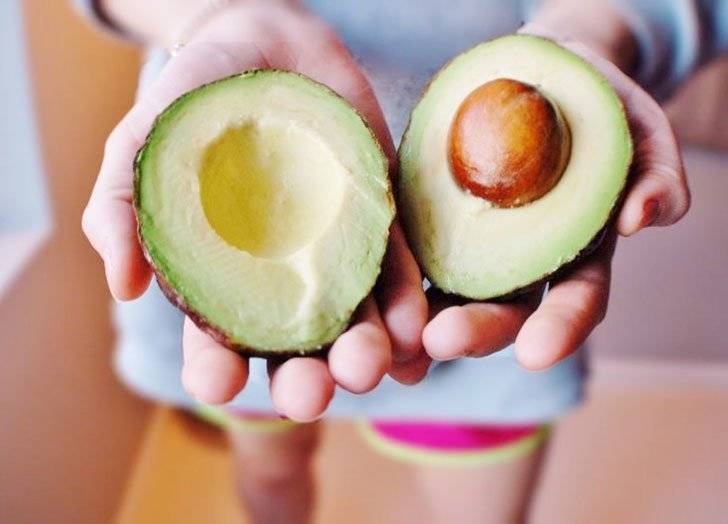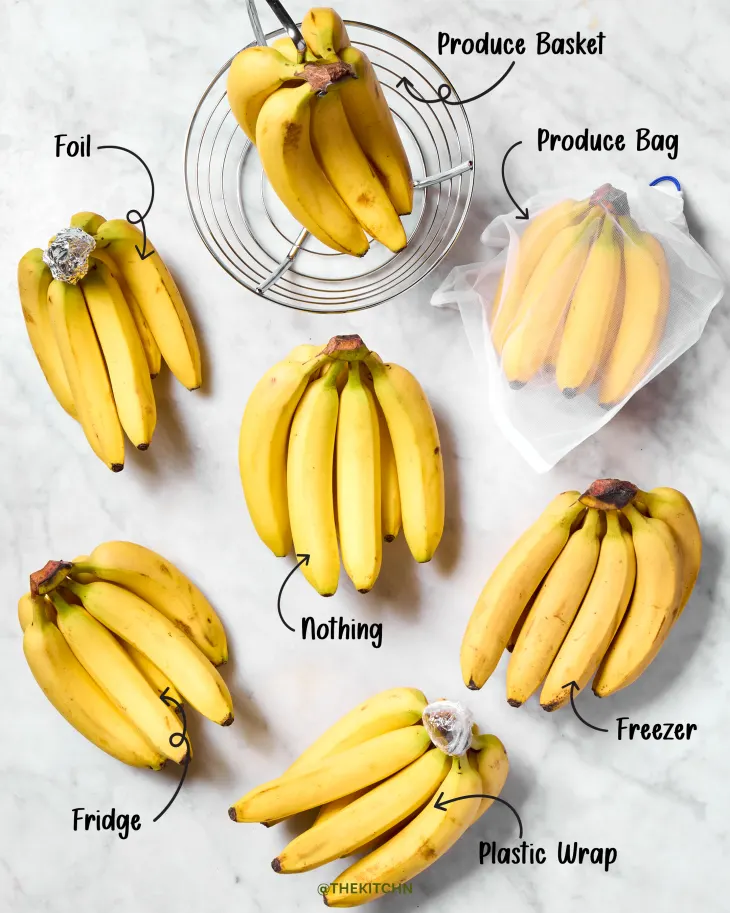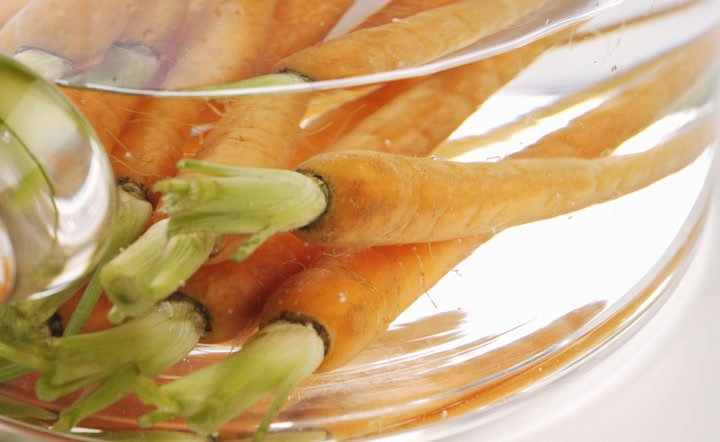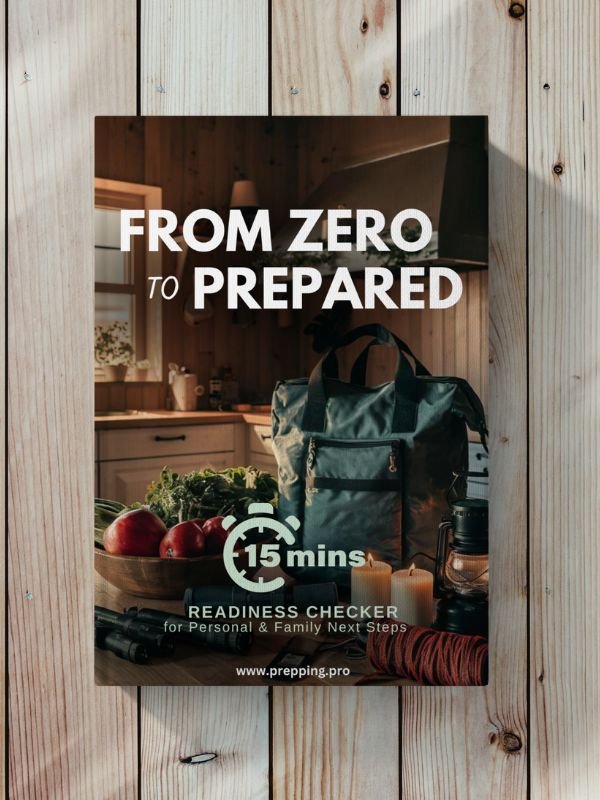To extend the shelf life of fresh produce, it’s important to store them correctly, and in this article, I will provide helpful tips for preserving fruits and vegetables in your home.
Key Takeaways:
- Proper storage of fruits and vegetables can reduce food waste and save money on groceries.
- Avoid storing fruits that emit ethylene gas, such as apples and bananas, too close to other produce.
- Each type of fresh produce has specific storage requirements for optimal shelf life.
- Consider freezing fresh produce for longer-term preservation.
- By implementing these tips, you can enjoy fresh and nutritious produce for longer periods of time.
According to research, the United States throws away 150,000 tons of food daily, with fruits and vegetables accounting for 39% of the waste.
By implementing simple tricks to reduce food spoilage, we can have a significant impact on the environment and save money on groceries.
Storing fruits and vegetables properly is crucial to prevent spoilage, and one common mistake is storing them too close together. Certain fruits like apples, melons, and bananas emit ethylene gas, which can cause other produce to ripen faster.

Table of Contents
Storing Apples and Avocados

When it comes to preserving fresh produce, proper storage techniques can significantly prolong the shelf life of fruits and vegetables.
In this section, I will share some handy tips on storing apples and avocados, two popular and versatile fruits.
Storing Apples
Apples should be stored in a cool, dry place, away from direct sunlight.
For short-term storage, you can keep them in an uncovered fruit bowl on the countertop.
However, if you have a surplus of apples and want to extend their freshness, it’s best to store them in the refrigerator’s crisper drawer.
To prevent apples from ripening other produce, you can individually wrap each apple in a damp paper towel and place them in a plastic bag with holes. The damp paper towel helps maintain the apple’s moisture while allowing airflow to prevent the build-up of moisture and mold.
This technique can help prolong the shelf life of your apples and reduce food waste.
Storing Avocados
Avocados require slightly different storage conditions.
When the avocados are unripe or nearing ripeness, it’s ideal to store them on the countertop at room temperature.
This allows them to continue the ripening process.
However, once they reach the desired level of ripeness, it’s best to transfer them to the refrigerator to slow down further ripening.
To store ripe avocados in the refrigerator, place them in an airtight container or the crisper drawer. Avoid storing avocados with bananas or apples, as the ethylene gas emitted by these fruits can accelerate the ripening process of avocados.
Remember to adjust the storage methods based on the ripeness of the fruit, and always keep ethylene-sensitive produce separate from fruits that emit this gas.
Follow these tips to keep your fresh produce in top condition!
Storing Asparagus

Proper storage is key to keeping asparagus fresh and prolonging its shelf life. Here are some tips for storing asparagus:
- Refrigerator Storage: Place the asparagus in the refrigerator’s crisper drawer, which provides a cool and humid environment. To maintain freshness, wrap the ends of the asparagus stems in a damp paper towel, then loosely cover the entire bunch with a plastic bag.
- Water Storage: Another method is to treat asparagus like fresh flowers. Trim the ends of the stems and place the bunch in a cup or vase with a few inches of fresh water. Cover the tops of the asparagus loosely with a plastic bag and store in the refrigerator.
- Countertop Storage: If refrigerator space is limited, you can also store asparagus on the countertop for up to a few days. Place the bunch in a jar or container with about an inch of water and loosely cover the tops with a plastic bag.
To freeze asparagus for longer-term storage, blanch the spears in boiling water for a couple of minutes, then transfer them to an ice bath to stop the cooking process.
Once cooled, pat them dry and place them in freezer-safe bags or containers. Be sure to label the bags with the date for easy reference.
By following these storage techniques, you can enjoy fresh asparagus for an extended period and minimize waste.
| Storage Method | Temperature | Humidity | Duration |
|---|---|---|---|
| Refrigerator | 32-36°F (0-2°C) | 90-95% humidity | Up to 1 week |
| Water | 32-36°F (0-2°C) | 90-95% humidity | Up to 1 week |
| Countertop | Room temperature | N/A | Up to a few days |
| Freezing | -0.4°F (-18°C) or below | N/A | Up to 1 year |
Storing Bananas

When it comes to prolonging the shelf life of bananas, proper storage is key.
Bananas are notorious for releasing high amounts of ethylene gas, which can accelerate the ripening process of other fruits.
To prevent this, it’s best to buy bananas when they are slightly green and store them separately from other fruits.
To avoid bruising, keep bananas in a fruit bowl or hang them on a banana tree.
The tree keeps them separated and minimizes contact, reducing the risk of bruising. It’s also important to keep bananas away from direct sunlight, as heat can cause them to ripen quickly.
If you want to extend the storage time even further, bananas can be frozen. Simply peel the bananas and place them on a baking sheet in the freezer until they are firm.
Then transfer them to a freezer-safe container or bag.
Frozen bananas are perfect for making smoothies or adding to baked goods.
Benefits of Proper Banana Storage
Properly storing bananas not only prolongs their shelf life but also helps maintain their quality and taste.
Here are some benefits of storing bananas correctly:
- Reduced food waste: By preventing bananas from ripening too quickly, you can minimize the chances of them going bad before you can consume them.
- Cost savings: When you store bananas properly, you can buy them in larger quantities when they are on sale, saving you money in the long run.
- Enjoying ripe bananas at your own pace: Storing bananas separately allows you to control their ripening process. You can have a supply of perfectly ripe bananas whenever you need them.
| Storage Method | Shelf Life |
|---|---|
| Countertop, separated from other fruits | 2-7 days |
| Refrigerator, in a plastic bag | 1-2 weeks |
| Frozen, peeled | Up to 6 months |
Storing Beets
Beets are delicious root vegetables that can be stored for extended periods if done correctly.
By following proper storage techniques, you can prolong the shelf life of your beets and ensure they remain fresh and flavorful for future use.
Storing Whole Beets

Whole beets can be stored in the refrigerator’s crisper drawer to maintain their freshness.
It’s essential to not wash or peel them before storing as this can lead to spoilage. Instead, keep the beets as they are with their skin intact to protect the interior and prevent moisture loss.
Place the beets loosely in a container or plastic bag and store them in the crisper drawer. This method can help keep the beets fresh for up to two months.
Freezing Beets
If you have an abundance of beets or want to preserve them for longer, freezing is a great option. Start by cooking the beets until they are tender.
You can boil, roast, or steam them based on your preference. After cooking, allow the beets to cool on a baking sheet.
Once cooled, peel and slice the beets into desired sizes. Place the sliced beets in a freezer bag, date them, and store them in the freezer.
Frozen beets can be kept for an extended period, making them a convenient option for future use in soups, stews, or salads.
| Storage Method | Shelf Life |
|---|---|
| Refrigerator (whole beets) | Up to 2 months |
| Freezer (cooked & sliced beets) | Up to 1 year |
Proper storage and freezing techniques can help you enjoy fresh beets all year round.
Whether you choose to store them in the refrigerator or freeze them for long-term preservation, you can ensure the longevity of these nutritious and versatile root vegetables.
Storing Blueberries

Blueberries are delicious and nutritious berries that can add a burst of flavor to your meals, snacks, and desserts.
To ensure that your blueberries stay fresh and flavorful for as long as possible, proper storage is key.
By following these tips, you can prolong the shelf life of your blueberries and enjoy them at their best.
Storing Fresh Blueberries:
To keep your fresh blueberries in optimal condition, it’s important to handle them with care and store them properly.
Here are some handy tips:
- Leave them unwashed: Avoid washing your blueberries until you’re ready to eat them. Moisture can lead to the growth of mold, so it’s best to keep them dry until you’re ready to enjoy them.
- Choose the right container: Blueberries are delicate and can easily become squished. It’s best to store them in a container with good airflow to prevent them from getting crushed. The original pint container they came in is often a great choice.
- Add a paper towel: Placing a clean paper towel at the bottom of the container can help absorb any excess moisture and prolong the freshness of your blueberries.
- Refrigerate them: Blueberries should be stored in the refrigerator to slow down the ripening process and extend their shelf life. A shelf in the fridge is ideal, as it provides a cool and consistent temperature.
Freezing Blueberries:
If you have a surplus of blueberries or want to enjoy them beyond their peak season, freezing is a great option.
Here’s how you can freeze blueberries:
- Rinse and dry: Before freezing, rinse your blueberries gently under cold water and pat them dry with a clean towel.
- Spread them out: Lay the blueberries in a single layer on a baking sheet, making sure they are not touching each other. This will prevent them from freezing into clumps later on.
- Freeze until firm: Place the baking sheet in the freezer and let the blueberries freeze until firm, usually for about 1-2 hours.
- Transfer to a freezer-safe container: Once the blueberries are firm, transfer them to a freezer-safe bag or container. Make sure to label the container with the date to keep track of their freshness.
When stored properly, frozen blueberries can last for up to 12 months, allowing you to enjoy the taste of summer all year round.
Storing Carrots

When it comes to carrot storage, proper handling is key to prolonging their shelf life and keeping them fresh.
Here are some tips to help you store your carrots effectively:
- Remove the greens: Start by removing the green tops from the carrots. The greens tend to draw moisture from the roots, leading to wilting and spoilage.
- Airtight container: Place the carrots in an airtight container or a plastic bag. This will help retain their moisture and prevent them from drying out.
- Refrigeration: Store the carrots in the refrigerator’s vegetable crisper drawer. The cool temperature will slow down the spoilage process and keep the carrots fresh for a longer time.
- Dry paper towel: To further extend their freshness, wrap the carrots in a dry paper towel. This will absorb any excess moisture and help prevent rotting.
If you have an abundance of carrots and want to preserve them for an extended period, freezing is a great option. Here’s how you can freeze carrots:
- Blanching: Start by blanching the carrots in boiling water for a couple of minutes. This helps retain their color, texture, and nutrients.
- Cooling: After blanching, cool the carrots immediately by placing them in an ice water bath. This stops the cooking process and helps maintain their crispness.
- Freezing: Once the carrots are cooled, pat them dry and transfer them to a freezer-safe bag or container. Make sure to remove any excess air to prevent freezer burn.
By following these storage and freezing techniques, you can extend the shelf life of your carrots and enjoy their fresh, crunchy goodness for longer periods.
Longevity of Carrots
| Storage Method | Shelf Life |
|---|---|
| Refrigeration (with greens removed) | 2 to 4 weeks |
| Refrigeration (wrapped in a dry paper towel) | 4 to 6 weeks |
| Freezing (blanched and properly sealed) | 8 to 12 months |
Storing Cherries

When it comes to cherries, proper storage is essential for prolonging their shelf life and maintaining their delicious flavor.
Here are some handy tips for storing cherries:
- Refrigeration: As soon as you bring cherries home from the store, place them in the refrigerator to prevent spoilage. Cherries can last for about a week when properly refrigerated.
- Uncovered storage: To avoid moisture accumulation, it’s best to leave cherries uncovered in the refrigerator. This helps maintain their freshness and prevents the growth of mold.
- Freezing: If you want to enjoy cherries beyond their peak season, freezing is a great option. Start by washing the cherries, removing the stems, and laying them out on a baking sheet to cool in the freezer. Once frozen, transfer them to a freezer-safe, airtight container for long-term storage.
Storing Cilantro

When it comes to cilantro, proper storage techniques can help prolong its shelf life and ensure that it stays fresh for longer.
To start, trim off the ends of the stems to remove any wilted or discolored parts. This will help maintain the overall freshness of the herb.
After trimming, place the bunch of cilantro in a can or mason jar filled with water.
Make sure the stems are submerged while keeping the leaves above the waterline.
To preserve the moisture, loosely cover the leaves with a clean plastic bag or wrap them in a damp paper towel. This will help prevent the herb from drying out and wilting.
If you’re looking for even longer storage options, consider freezing cilantro.
One technique is to blend the cilantro with a small amount of water or olive oil and freeze it in ice cube trays.
Once frozen, transfer the cilantro cubes to a freezer-safe container or bag. This method allows you to easily grab a cube whenever you need cilantro for your recipes.
Summary:
- Trim the ends of the cilantro stems
- Place the cilantro in a can or mason jar with water
- Cover the leaves with a plastic bag or damp paper towel
- For longer storage, freeze cilantro in ice cube trays
Table:
| Storage Method | Duration |
|---|---|
| Refrigerator (with water) | Up to 2 weeks |
| Freezing (blended with water or oil) | Up to 6 months |
Conclusion
Preserving fresh produce and storing fruits and vegetables properly are key food preservation techniques that can help reduce food waste and extend the shelf life of your groceries.
By following these handy tips and tricks, you can enjoy flavorful and nutritious fruits and vegetables for longer periods of time.
Remember to store apples and avocados separately from other produce to avoid rapid ripening caused by ethylene gas.
Keep asparagus in the refrigerator’s crisper drawer or in water for optimal freshness.
Bananas should be stored away from sunlight and other fruits to prevent them from ripening too quickly. Beets can be stored with the skin on in the refrigerator, while blueberries should be kept in a container with good airflow.
To prolong the shelf life of carrots, remove the greens and keep them dry.
Cherries should be refrigerated immediately, and cilantro can be stored in water in the refrigerator or frozen for longer storage.
By implementing these storage techniques, you can reduce food waste, save money, and enjoy fresh produce for longer.
Start preserving your fresh produce today and reap the benefits!
FAQ
How can I prolong the shelf life of my fruits and vegetables?
By storing them properly and following the recommended techniques for each type of produce.
What is ethylene gas and why is it important to consider when storing fruits and vegetables?
Ethylene gas is a natural ripening agent produced by certain fruits like apples, melons, and bananas. It can cause other produce to ripen faster, so it’s important to store ethylene-producing fruits separately from other produce.
Can I freeze fruits and vegetables for longer storage?
Yes, freezing is a great way to extend the shelf life of produce. Just make sure to follow the recommended blanching or cooking steps before freezing.
How long can I store different types of produce?
The shelf life of produce varies depending on the type. Apples and avocados can last for a week or longer when stored properly, while berries and leafy herbs like cilantro should be used within a few days.
Can I store different types of produce together?
Some produce can be stored together, but it’s important to consider ethylene-sensitive fruits and vegetables. These should be stored separately to prevent them from ripening too quickly.
How can I prevent my produce from bruising?
Proper storage techniques, like using banana trees or wrapping delicate fruits in paper towels, can help minimize bruising.

